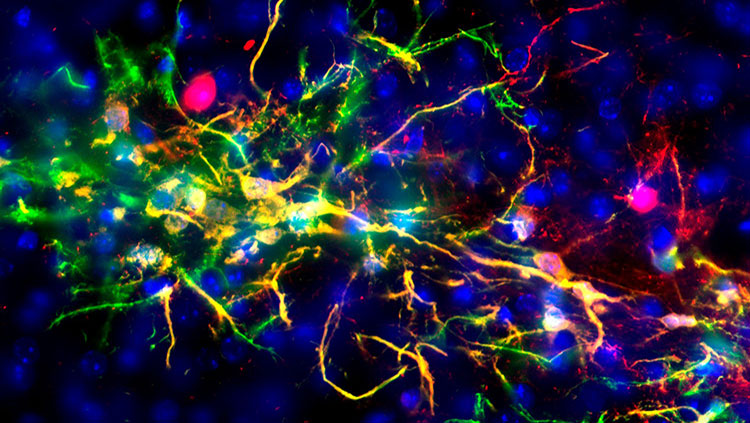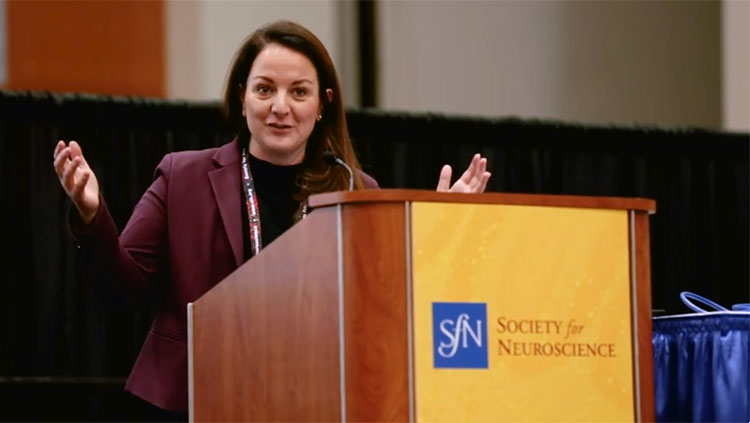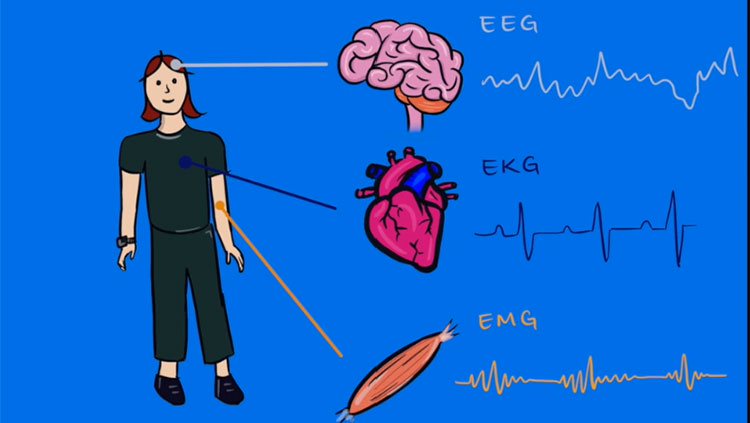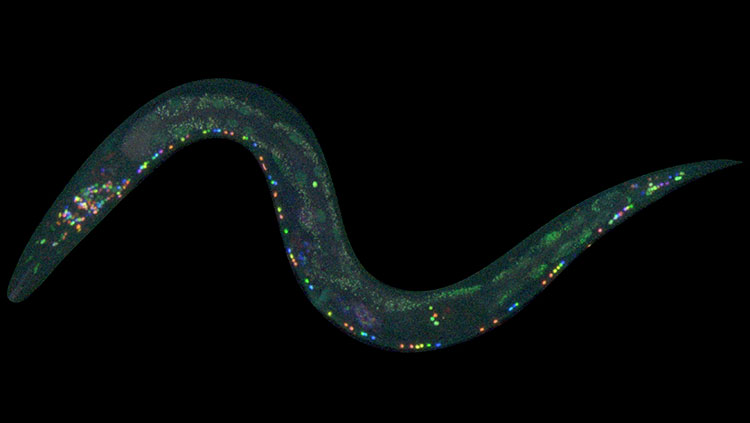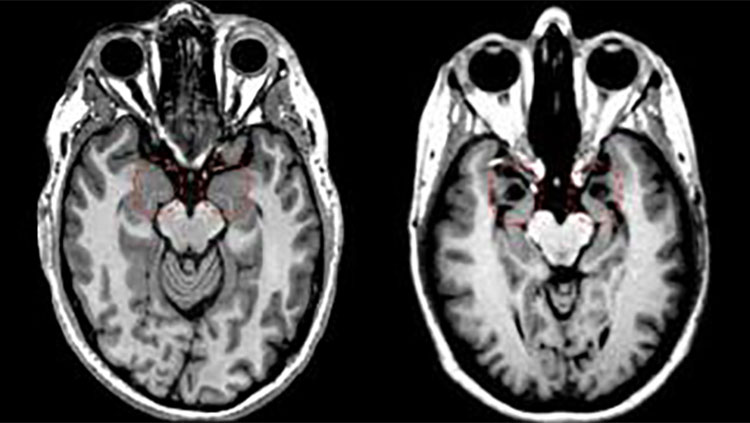New Cells for a Renewed Brain
- Published14 Jan 2020
- Author Charlie Wood
- Source BrainFacts/SfN
In this colorful chaos lies the emergence of order, as blank-slate mouse stem cells placed in a new mouse’s brain grow into real neurons. If stem cells are flexible enough become useful cells of any desired type, might they someday support damaged cells in human brains, too? That’s the hope of researchers studying stem cell treatments for diseases like Parkinson’s and Alzheimer’s.
One research group took human stem cells and stuck them in the brains of mice with a mouse-version of Alzheimer’s disease. It gave the rodents a mental boost on a battery of memory tests. Eight weeks after the surgery, the treated mice showed just as much curiosity toward new toys as healthy mice, while the mice who got a mock treatment couldn’t seem to remember which toys they’d played with before. The new cells seemed to stimulate the mouse’s neural immune cells, cutting down on the gunky plaques linked with Alzheimer’s. Further research is needed tell us if this encouraging result in mice will translate to the human brain in the future.
CONTENT PROVIDED BY
BrainFacts/SfN
References
Garitaonandia, I., Gonzalez, R., Christiansen-Weber, T., Abramihina, T., Poustovoitov, M., Noskov, A., … Kern, R. (2016). Neural Stem Cell Tumorigenicity and Biodistribution Assessment for Phase I Clinical Trial in Parkinson’s Disease. Scientific Reports, 6, 34478. doi: https://doi.org/10.1038/srep34478
McGinley, L. M., Kashlan, O. N., Bruno, E. S., Chen, K. S., Hayes, J. M., Kashlan, S. R., … Feldman, E. L. (2018). Human neural stem cell transplantation improves cognition in a murine model of Alzheimer’s disease. Scientific Reports, 8(1), 14776. doi: 10.1038/s41598-018-33017-6


